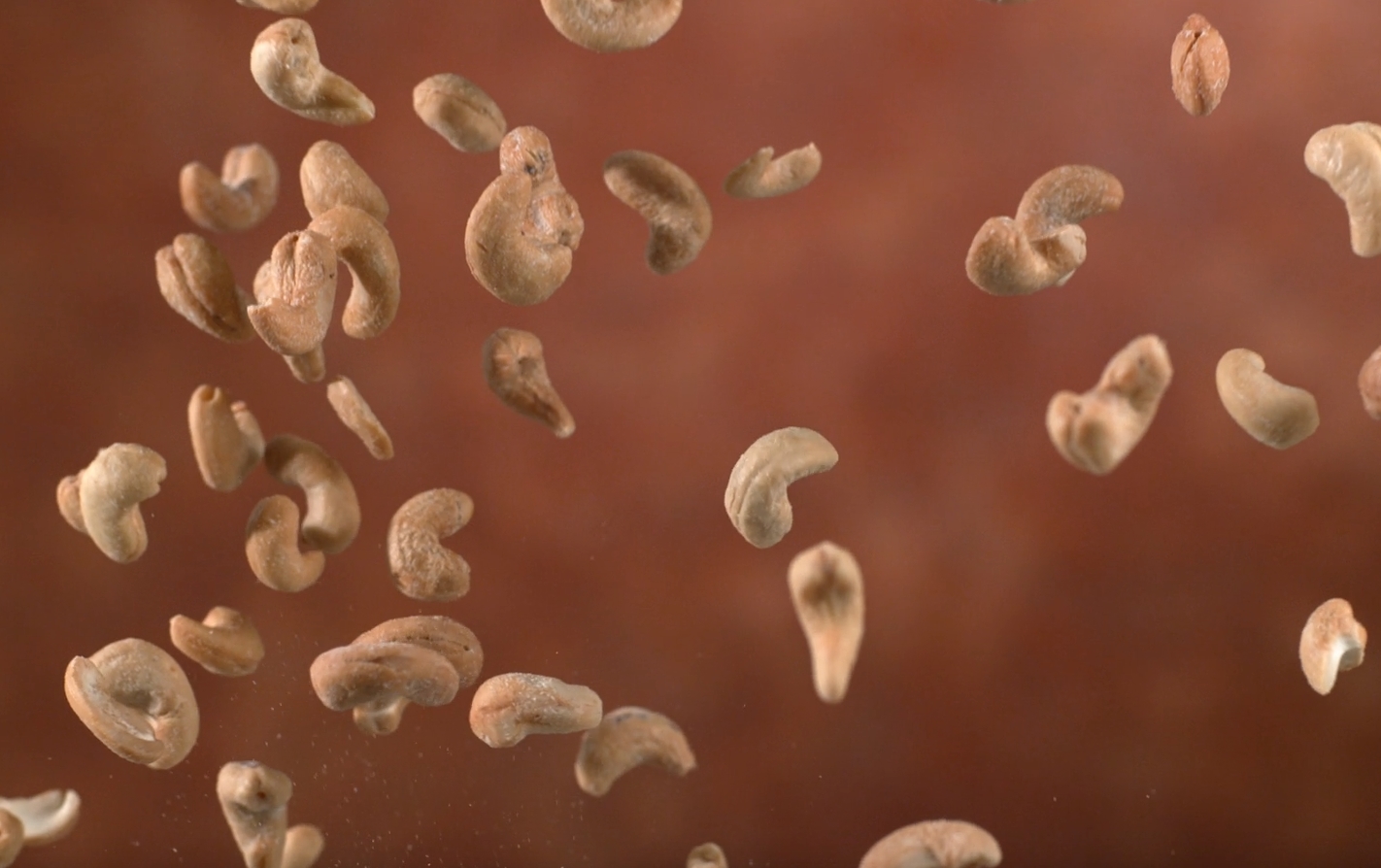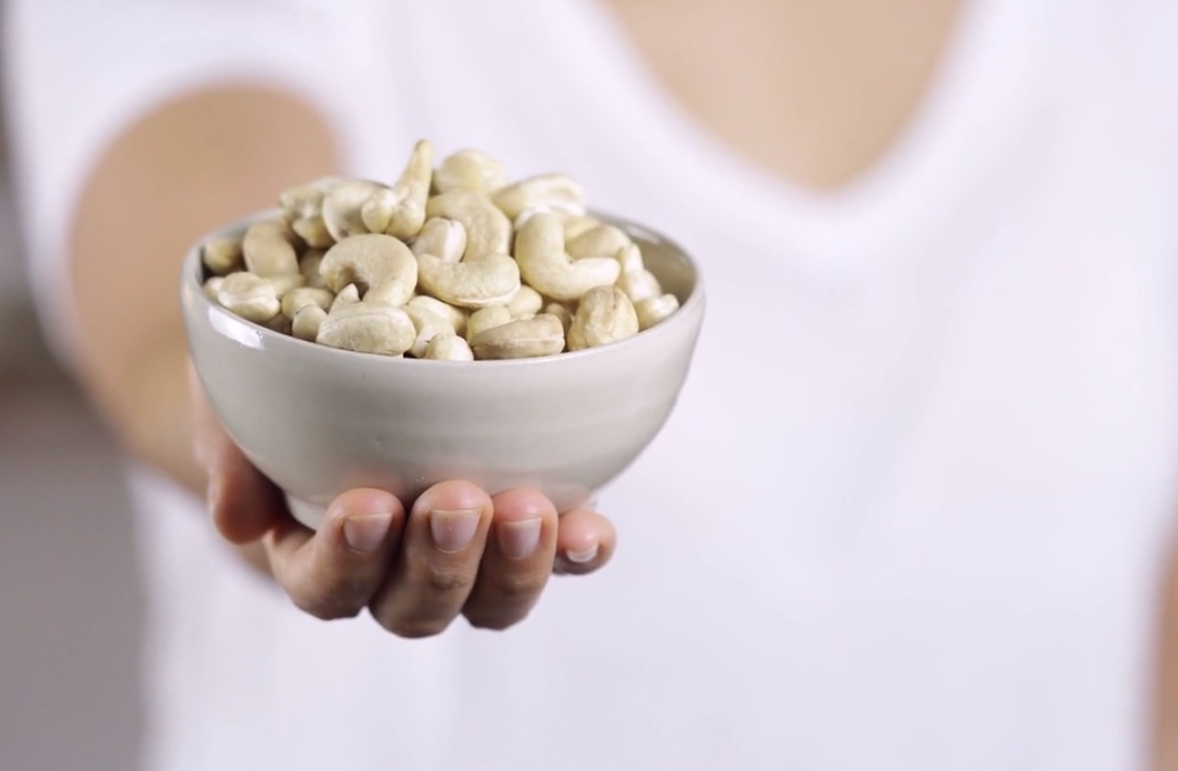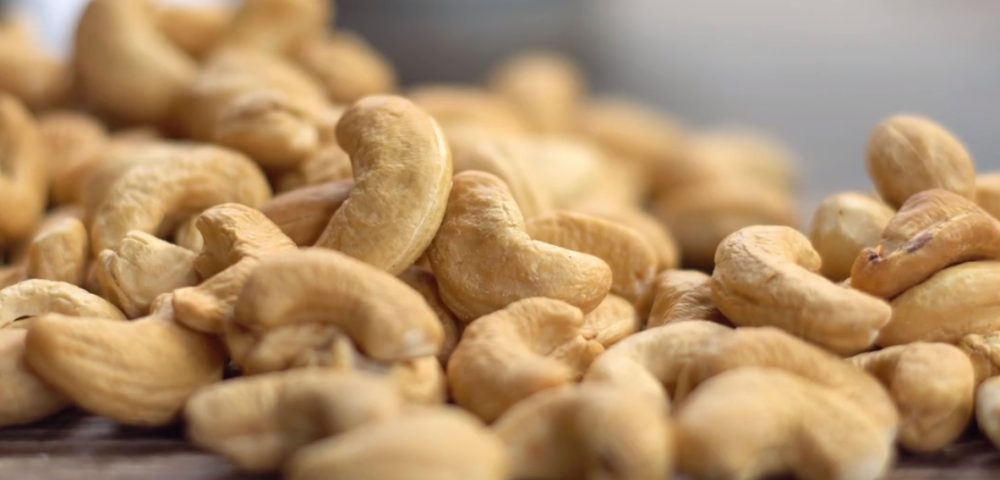Cashews, often enjoyed as a snack or used in various culinary preparations, are not only delicious but also pack a nutritional punch. These kidney-shaped nuts are rich in healthy fats, protein, vitamins, and minerals, making them a valuable addition to a balanced diet. In this article, we will explore the benefits of cashews in weight management.
Firstly, let’s understand what cashews are and their nutritional profile. Cashews are tree nuts that are native to Brazil and are now cultivated in many tropical regions worldwide. When it comes to their nutritional composition, cashews are a great source of healthy fats, protein, fiber, vitamins such as vitamin E and minerals including magnesium, zinc, and iron. They are also low in sugar and cholesterol-free.
Now, let’s delve into how cashews aid in weight management. The healthy fats present in cashews contribute to satiety, making you feel fuller for longer, thus reducing overeating. These healthy fats are beneficial for boosting metabolism, which plays a crucial role in burning calories and maintaining a healthy weight.
But are cashews suitable for weight loss? While cashews are nutrient-dense and can support weight management goals, it’s important to consider their calorie content. Cashews are energy-dense and should be consumed in moderation to avoid excess calorie intake. Practicing portion control is key when enjoying cashews as part of a weight loss plan.
Furthermore, cashews offer several additional health benefits such as supporting heart health, improving cognitive function, and promoting bone health. However, it’s important to consider precautions and potential side effects, especially for individuals with nut allergies or those prone to kidney stone formation.
Page Contents
- 1 What Are Cashews?
- 2 Nutritional Profile of Cashews
- 3 How Do Cashews Aid in Weight Management?
- 4 Are Cashews Suitable for Weight Loss?
- 5 Incorporating Cashews Into a Balanced Diet
- 6 Other Health Benefits of Cashews
- 7 Precautions and Potential Side Effects
- 8 Cashews in Weight Management: Healthy Fats for Satiety and Metabolism
- 9 Frequently Asked Questions
What Are Cashews?
Cashews are a type of nut that originated from Brazil and are now widely cultivated in various tropical regions around the world. They are kidney-shaped and have a creamy texture and mild, slightly sweet flavor.
Cashews, also known as Anacardium occidentale, are a rich source of healthy fats, protein, dietary fiber, and various essential minerals, making them a nutritious addition to any diet. They contain monounsaturated fats, which are known to boost heart health and lower bad cholesterol levels. Cashews are packed with vitamins and minerals such as magnesium, zinc, and copper, which help enhance overall well-being and support a healthy metabolism.
In terms of quantity, a 1-ounce serving of cashews contains approximately 160 calories, 5 grams of protein, 13 grams of fat, and 1 gram of fiber. This makes them a satisfying snack that can help curb hunger and promote satiety.
Historically, cashews have an interesting background. Native to Brazil, they were introduced to India by Portuguese explorers in the 16th century. The cashew tree quickly adapted to the Indian climate and became an important cash crop in the region. Today, India is one of the largest producers and exporters of cashews globally.
Cashews are a versatile and nutritious nut that offers various health benefits due to their composition of healthy fats, protein, and essential minerals. Incorporating cashews into your diet can help enhance overall well-being and support weight management goals. So why not enjoy a handful of these delicious nuts as a snack or add them to your favorite recipes for an extra dose of nutrition?
Nutritional Profile of Cashews

Cashews, the nutritional powerhouses, offer a remarkable profile of essential nutrients. From healthy fats for satiety and metabolism to protein content and vital vitamins and minerals, each sub-section will unravel the remarkable benefits hidden within these small but mighty nuts. A closer look at the nutritional profile of cashews will reveal the captivating story of how they contribute to weight management and overall well-being. So, let’s dig in and discover the secrets of this extraordinary nut.
Healthy Fats in Cashews
When it comes to cashews, they are not only delicious but also packed with healthy fats, known as “Healthy Fats in Cashews,” that can benefit weight management. Here are some important points to consider about the “Healthy Fats in Cashews”:
|
If you are looking to incorporate “Healthy Fats in Cashews” into your diet for weight management, cashews can be a great choice. Remember to practice portion control and moderation, as cashews are calorie-dense. Including a handful of cashews as a snack or adding them to salads, stir-fries, or homemade trail mixes can be a tasty and nutritious way to reap the benefits of these “Healthy Fats in Cashews.”
Protein Content in Cashews
The protein content in cashews is a crucial element to consider when assessing their nutritional profile. Here is a table presenting the protein content in cashews per 100 grams:
| Protein | 18 grams |
Cashews are not only a rich source of healthy fats but also provide a significant amount of protein. The protein content in cashews contributes to their nutritional value and makes them a suitable choice for individuals looking to maintain a balanced diet.
Incorporating cashews into your meals or snacks can help increase your protein intake, which is essential for various bodily functions. Proteins serve as the building blocks for muscles, tissues, and enzymes. They also play a vital role in repairing cells and promoting overall health.
By including cashews in your diet, along with other protein-rich foods, you can maintain a healthy and balanced lifestyle. Remember to consume them in moderation as part of a well-rounded meal plan.
Understanding the protein content in cashews and making informed dietary choices can help you cultivate a balanced nutritional approach and enhance your overall well-being.
Cashews, originally native to northeastern Brazil, have been consumed for centuries by indigenous communities. They gained global popularity during the colonial era, thanks to their rich flavor and versatility that made them a prized ingredient. Today, cashews are enjoyed worldwide not only for their taste but also for their nutritional benefits, including their protein content. With advances in food science and greater accessibility, cashews have become a popular choice for individuals seeking a healthy addition to their diet.
The best part about cashews? They’re like a multivitamin in a tasty little nut package.
Vitamins and Minerals in Cashews
| Vitamin | Amount per 100g |
| Vitamin E | 0.9 mg |
| Vitamin K | 34.1 mcg |
| Vitamin B6 | 0.4 mg |
| Thiamin (Vitamin B1) | 0.4 mg |
| Riboflavin (Vitamin B2) | 0.1 mg |
| Niacin (Vitamin B3) | 1.1 mg |
| Folate (Vitamin B9) | 25 mcg |
| Pantothenic Acid (Vitamin B5) | 0.8 mg |
| Mineral | Amount per 100g |
| Copper | 0.6 mg |
| Magnesium | 292 mg |
| Phosphorus | 593 mg |
| Zinc | 5.8 mg |
Cashews provide a rich source of vitamins and minerals, making them a highly nutritious food. They contain significant amounts of vitamins such as vitamin E, vitamin K, vitamin B6, thiamin (vitamin B1), riboflavin (vitamin B2), niacin (vitamin B3), folate (vitamin B9), and pantothenic acid (vitamin B5). These vitamins are essential for energy production, nervous system health, and overall well-being.
In addition to vitamins, cashews are also packed with minerals. They are particularly high in copper, which is crucial for the production of red blood cells and maintaining a strong immune system. Cashews also contain abundant amounts of magnesium and phosphorus, which play important roles in bone health, nerve function, and muscle contractions. Furthermore, cashews are a good source of zinc, contributing to immune function and cell growth.
By incorporating cashews into your regular diet, you can ensure a diverse intake of essential vitamins and minerals that are vital for maintaining overall health and well-being.
How Do Cashews Aid in Weight Management?

Cashews have emerged as an unexpected ally in the quest for weight management. But how exactly do these delectable nuts contribute to our goals? The answer lies in their ability to provide satiety and boost metabolism. In this section, we’ll uncover the secrets behind cashews’ role in weight management, exploring the power of healthy fats for keeping us full and igniting our calorie-burning potential. So get ready to learn how this tiny nut can make a big impact on your journey to a healthier weight!
Healthy Fats for Satiety
When it comes to weight management, incorporating healthy fats for satiety can be highly beneficial. Here are some essential points to consider:
- Cashews are an excellent source of healthy fats, including monounsaturated and polyunsaturated fats. These fats are renowned for promoting satiety and providing a long-lasting feeling of fullness.
- The healthy fats found in cashews play a crucial role in regulating blood sugar levels. They effectively prevent sudden spikes and crashes, which are known to trigger cravings and overeating.
- Integrating cashews into your diet can significantly contribute to achieving a well-balanced meal. Pairing cashews with foods rich in protein and fiber offers a satisfying and nutritionally dense combination that supports your weight management goals.
- While cashews contain a higher number of calories, portion control is key. It’s essential to be mindful of the quantity you consume to prevent weight gain. Opting for a small handful of cashews allows you to enjoy the benefits of healthy fats without exceeding your calorie needs.
- Ensuring variety in your diet is crucial for overall health. While cashews are a nutritious choice, they should be part of a diverse and well-rounded meal plan that includes other sources of healthy fats, proteins, carbohydrates, vitamins, and minerals.
Fact: Cashews are not only a source of healthy fats for satiety but also contain essential nutrients such as magnesium, zinc, and vitamin E, which greatly contribute to overall well-being.
Feeling sluggish? Cashews will give your metabolism a much-needed boost!
Boosting Metabolism
Cashews, known for their rich and creamy texture, are not just a tasty snack but also offer several health benefits. One of these benefits is their ability to boost metabolism, aiding in weight management. Here’s how cashews contribute to enhancing your metabolic rate:
- 1Rich in healthy fats: Cashews are a great source of healthy fats, specifically monounsaturated fats, which have been shown to boost metabolism. These fats help to increase satiety and reduce appetite, making you feel fuller for longer.
- High protein content: Protein plays a crucial role in metabolism as it requires more energy to digest compared to fats and carbohydrates. Cashews contain a decent amount of protein, which can further enhance your metabolism.
- Essential vitamins and minerals: Cashews are packed with essential vitamins and minerals like magnesium, zinc, and vitamin B6. These nutrients are essential for the proper functioning of your metabolism and energy production.
Rebecca, a fitness enthusiast, added cashews to her diet to support her weight management journey. She noticed that incorporating a small handful of cashews as a mid-afternoon snack helped keep her energy levels up and prevented cravings for unhealthy snacks. Rebecca observed an increase in her metabolism, which she attributed to the regular consumption of cashews. This simple addition to her diet allowed her to reach her weight management goals more effectively while enjoying a delicious and nutritious snack.
Remember, every individual’s metabolism is unique, and results may vary. It’s essential to consult with a healthcare professional or registered dietitian to develop a personalized and balanced diet plan that suits your specific needs and goals.
Are Cashews Suitable for Weight Loss?

Cashews, known for their delicious taste and creamy texture, have sparked the curiosity of health-conscious individuals looking to shed some pounds. In this section, we’ll unveil whether cashews are suitable for weight loss. Brace yourself as we uncover the calorie content of cashews and explore the importance of portion control and moderation. Prepare to discover how these facts can play a role in your journey towards a healthier weight management strategy.
Calorie Content of Cashews
The calorie content of cashews can be better understood through the following table:
| Amount | Calories |
| 1 ounce (28 grams) of cashews | 157 calories |
| 100 grams of cashews | 553 calories |
As seen from the table, cashews have a relatively high calorie content. Just 1 ounce (28 grams) of cashews contains approximately 157 calories, while 100 grams of cashews provide around 553 calories. Therefore, it’s essential to be mindful of your portion sizes when incorporating cashews into your diet.
While cashews are nutrient-dense and offer several health benefits, their calorie content should be taken into consideration, especially if you are trying to manage your weight. It is important to practice portion control and moderation when consuming cashews to avoid excessive calorie intake.
Including cashews as part of a balanced diet can still be beneficial, but it’s crucial to balance the calorie content with the overall energy needs of your body. By monitoring your portion sizes and incorporating cashews into meals or snacks in moderate amounts, you can enjoy their nutritional benefits without compromising your weight management goals.
Portion control and moderation are key when incorporating cashews into your diet, because let’s face it, too much of a good thing can quickly turn into a nutty situation.
Portion Control and Moderation
When it comes to incorporating cashews into a weight management plan, portion control and moderation are key. Here are some factors to consider:
- Understand serving sizes: A serving of cashews is typically around 1 ounce or a small handful. It’s important to be mindful of portion control to avoid consuming too many calories.
- Control calorie intake: Cashews are a calorie-dense food, so it’s important to monitor your consumption. One ounce of cashews contains approximately 160-170 calories. Keep track of the number of cashews you’re eating to maintain calorie control.
- Use cashews as a snack or ingredient: Cashews can be a satisfying snack on their own, but they can also be incorporated into meals and recipes. Adding them to salads, stir-fries, or yogurt can provide a crunchy and nutritious boost to your meals.
- Pair cashews with other foods: Combining cashews with foods that are high in fiber, protein, or healthy fats can help increase satiety and promote portion control. Consider pairing cashews with fruits, vegetables, or lean sources of protein.
- Avoid excessive consumption: While cashews offer health benefits, excessive consumption can lead to weight gain. Limit your intake to a reasonable amount and avoid mindless snacking.
- Listen to your body: Pay attention to your hunger and fullness cues when eating cashews. Stop eating when you feel satisfied, rather than continuing to eat out of habit or for taste.
- Consult a healthcare professional: If you have specific dietary or weight management goals, it’s always best to consult with a healthcare professional or registered dietitian. They can provide personalized guidance based on your individual needs.
By practicing portion control and moderation, you can enjoy the nutritional benefits of cashews without compromising your weight management goals.
Go nuts and add cashews to your balanced diet for a healthy dose of crunch and nutrients.
Incorporating Cashews Into a Balanced Diet

When it comes to incorporating cashews into a balanced diet, there are several ways to enjoy these nutritious nuts:
- Snack on cashews: Enjoy a handful of cashews as a nutritious snack between meals. They provide a satisfying crunch and are packed with healthy fats, protein, and fiber.
- Add cashews to salads: Sprinkle some chopped cashews on top of your salads for added texture and nutty flavor. They pair well with greens, fruits, and other salad toppings.
- Use cashew butter: Swap traditional nut butters for cashew butter. Spread it on whole grain toast, use it as a dip for fruits or vegetables, or incorporate it into smoothies and sauces for a creamy and nutritious boost.
- Cashews in stir-fries: Add cashews to your favorite stir-fry recipe for an extra protein and healthy fat punch. They add a delicious crunch and pair well with a variety of vegetables and proteins.
- Bake with cashews: Incorporate cashews into your baked goods such as cookies, muffins, or energy bars. They add a rich flavor and provide a nutritious twist to your favorite recipes.
- Cashews in curries: Cashews can be ground into a paste and used as a thickening agent in curries and sauces. They add a creamy texture and enhance the flavor of various spices.
Sarah, a health-conscious individual, decided to incorporate cashews into her balanced diet. She started snacking on a handful of cashews every day, which helped her stay satisfied between meals and avoid unhealthy snacking. She also loved adding chopped cashews to her salads, which added a delightful crunch and a touch of nuttiness. Sarah even experimented with cashew butter in her smoothies and enjoyed the creamy texture it provided. Incorporating cashews into her diet introduced a delicious and nutritious twist to her meals, boosting both her well-being and overall satisfaction.
Other Health Benefits of Cashews
Cashews offer numerous health benefits aside from their role in weight management. Here are some of these benefits:
- Cognitive function: Cashews contain nutrients that support brain health, such as magnesium, iron, and zinc. These minerals play a vital role in boosting cognitive function and improving memory.
- Heart health: Cashews are rich in monounsaturated and polyunsaturated fats, which are heart-healthy fats that can help reduce the risk of heart disease. These fats help lower bad cholesterol levels and increase good cholesterol levels in the body.
- Blood sugar control: Despite their relatively high carbohydrate content, cashews have a low glycemic index, meaning they have a minimal impact on blood sugar levels. This makes them a suitable snack for individuals with diabetes or those looking to control their blood sugar levels.
- Eye health: Cashews are an excellent source of antioxidants, including lutein and zeaxanthin, which are beneficial for eye health. These compounds help protect the eyes from damage caused by free radicals and reduce the risk of age-related macular degeneration.
- Healthy bones: Cashews are a good source of minerals such as calcium, magnesium, and phosphorus, which are essential for maintaining strong and healthy bones. These minerals contribute to bone density and strength, reducing the risk of conditions like osteoporosis.
- Improved digestion: Cashews contain dietary fiber, which aids in digestion and helps prevent constipation. Including cashews in your diet can promote regular bowel movements and maintain a healthy digestive system.
Incorporating cashews into your diet can provide these additional health benefits, making them a nutritious and versatile snack option. Remember to consume them in moderation as part of a balanced diet for optimal health outcomes.
Precautions and Potential Side Effects

When incorporating cashews into a weight management plan, it’s important to be aware of precautions and potential side effects to ensure overall well-being.
- Allergies: Cashews are tree nuts, and individuals with nut allergies should avoid consuming them to prevent adverse reactions or anaphylaxis.
- Weight gain: While cashews are a healthy source of fats, they are also calorie-dense. Consuming excessive amounts of cashews without considering overall caloric intake can lead to weight gain.
- Omega-6 fatty acids: Cashews are rich in omega-6 fatty acids, which are essential for the body but should be consumed in moderation. An excessive intake of omega-6 fatty acids can lead to inflammation and imbalances with omega-3 fatty acids.
- Portion control: In order to avoid consuming an excessive amount of calories, it’s important to practice portion control when eating cashews. This can be done by measuring servings or consuming pre-packaged portioned cashews.
- Interaction with medications: Cashews contain minerals, such as potassium, that may interact with certain medications. It is advised to consult with a healthcare professional before significantly increasing cashew consumption.
- Oxalates: Cashews, like other nuts, contain oxalates which can contribute to the formation of kidney stones in susceptible individuals. It’s important to drink enough water and consume a balanced diet to minimize the risk.
- Salmonella contamination: Raw cashews may carry a risk of salmonella contamination. To reduce this risk, it is recommended to consume roasted or heat-treated cashews.
By considering these precautions and potential side effects, individuals can incorporate cashews into their weight management plan safely and effectively.
Cashews in Weight Management: Healthy Fats for Satiety and Metabolism
- ✅ Cashews contain healthy fats that do not contribute to weight gain. (Source: HealthifyMe)
- ✅ Cashews can assist in weight loss when consumed in moderation. (Source: HealthifyMe)
- ✅ Cashews are associated with heart health and better blood sugar regulation. (Source: HealthifyMe)
- ✅ Cashews are a nutritional powerhouse, rich in vitamins, minerals, antioxidants, fiber, and other nutrients. (Source: HealthifyMe)
- ✅ Raw or unsalted cashews are the healthiest option, while processed cashews may have higher calorie and carbohydrate content. (Source: HealthifyMe)
Frequently Asked Questions
Can cashews contribute to weight gain?
No, cashews do not contribute to weight gain when consumed in moderation. The majority of fats in cashews are healthy fats that actually assist in weight loss. It is important to portion cashews carefully as they are high in calories and can contribute to weight gain if eaten in large amounts.
What are the health benefits of cashews?
Cashews offer a range of health benefits. They are associated with heart health, better blood sugar regulation, and can be a healthy part of a diabetes-friendly diet when consumed in moderation. Cashews are also rich in vitamins, minerals, antioxidants, fiber, and other nutrients that support the body’s functions and promote long-term health.
Are cashews suitable for a weight reduction diet?
Yes, cashews can be part of a weight reduction diet when consumed in moderation. They contain healthy fats and dietary fiber that promote satiety and can aid in weight loss. However, it is important to portion cashews carefully due to their high calorie content.
Do cashews contain harmful ingredients?
Raw or unsalted cashews are the best choice to avoid harmful ingredients such as added salt, sugar, or oil. Processed cashews may have higher calorie and carbohydrate content. It is advisable to opt for raw or unsalted nuts when choosing cashews.
What nutrients are found in cashews?
Cashews are full of beneficial nutrients such as protein, vitamin K, magnesium, manganese, zinc, iron, selenium, copper, and fiber. These nutrients support the body’s functions and contribute to overall health.
How can cashews affect blood sugar regulation?
Cashews can help regulate blood sugar when consumed in moderation as part of a balanced diet. Their nutrient composition, including healthy fats and dietary fiber, can contribute to better blood sugar control.
Astrona Knight is the Editor-in-Chief at Fischer Institute, where she shares her extensive knowledge on health and wellness topics. Her insightful articles cover everything from diet and nutrition to mental health, providing readers with practical tips and the latest research findings.
Also Read:
- List of Vitamins for Weight Gain: Boost Your Metabolism
- Major Side Effects OF Eating Too Many Blueberries -…
- The Role of Cashews in Managing Healthy Blood Sugar…
- Goli Before And After Weight Loss - Do They Really Work?
- Can Pre-Workout Make You Gain Weight - Busting the Myth
- Does Creatine Make You Gain Weight? - Strategies for…















